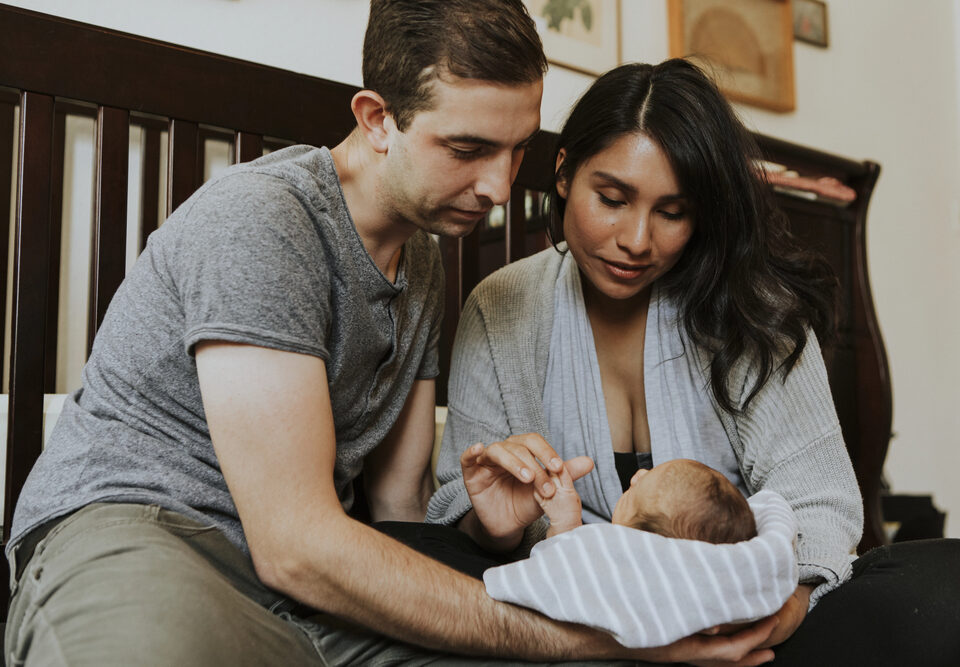Surrogate Mother Objects To Intended Parents Being Gay Fathers
七月 2, 2015Same-Sex Supreme Court Ruling Ripple Effect
八月 6, 2015These last few weeks have been a time for celebration. The gay rights movement reached a historic victory after the Supreme Court’s decision rang across the nation that gay marriage was finally legal. While this landmark ruling amplifies equality, the struggle still continues for gay families seeking surrogacy to build their families.
While marriage may be legal in the nation, surrogacy laws still differ from state to state.
Progressive states which embrace equality and surrogacy such as California, Nevada, Colorado, and Illinois will remain status quo.
However, if gay families move away from one of these states that recognize same-sex families, a legal safety net may disappear. This also includes parentage protection for the non-biological parent.
If a gay couple decides to relocate to a new state with only the birth certificate, the legal foundation may weaken if there are no biological connections and they didn’t give birth to the baby.
If a gay couple does not have a court-ordered judgement of parentage, they could be in a tenuous position in a new state if it doesn’t recognize parental rights for non-biological parents.
Douglas NeJaime, a law professor at UC Irvine, spelled it out perfectly in his LA Times article, “With ruling on marriage equality, fight for gay families is next.”
While the scales of justice from the Supreme Court ruling of Obergefell v. Hodges fell on the side of equality, issues for gay husbands and wives still remain.
“The court’s ruling could work to produce new conflicts and intensify old ones. The danger arises because marriage equality doesn’t immediately or necessarily erase cultural and legal attachments to biological, dual-gender parenting,” he writes.
For those advocating traditional families, such as David Blankenhorn of the Institute for American Values, the new LGBT fight will be based on the premise of the “marital presumption.” And this is being described as the developing battleground for their cause.
In a traditional marriage, when a mother gives birth to a child, the husband is legally “presumed” to be the baby’s father.
According to NeJaime, some lesbian couples are being denied this “presumption.”
In one high-profile case, he writes, officials in Iowa refused to list the biological mother’s wife on the birth certificate of the child they had conceived through donor insemination.
Officials in Iowa are holding their ground citing that a baby has a biological mother and biological father.
“Essentially the state excluded the non-biological mother because she was not a biological father,” he wrote.
While some states follow strict guidelines regarding presumed parentage, we cannot forget the states in this nation which surrogacy is illegal, such as New York.
The United States of America is fragmented, not united, regarding surrogacy and the parentage which arises from it.
NeJaime then called family building through surrogacy for gay men more daunting.
While each surrogacy journey is different, for most lesbian couples, the only assistance they may need is sperm donation. Conversely, for gay men, they have an uphill climb in choosing an egg donor and surrogate.
As mentioned earlier, states such as California have simplified surrogacy so gay couples have legal parentage. Legal documentation releases the surrogate from parental rights thereby granting an intended parent(s) full legal parentage and freeing them from undergoing the process of adoption.
NeJaime reports, “That works for gay male couples; even if states require the intended parents to be married, gay couples can now meet that requirement.”
While the Supreme Court ruling afforded the gay community a huge stride toward equality, there is still more work to be done.
“One might think that equality for gay families has arrived, but…marriage equality doesn’t erase cultural and legal attachments to biological, dual-gender parenting,” NeJaime writes.
And he is absolutely right.




